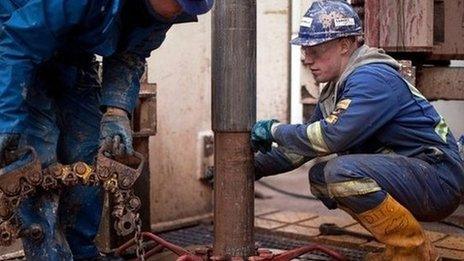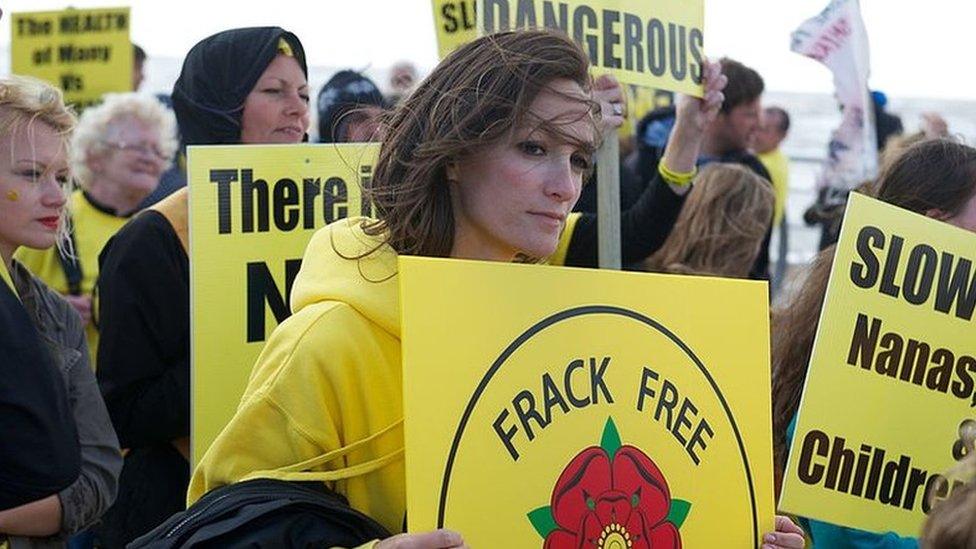Fracking under national parks backed by MPs
- Published
Claire Marshall explains how fracking could be done in national parks
MPs have voted to allow fracking for shale gas 1,200m below national parks and other protected sites.
The new regulations - which permit drilling from outside the protected areas - were approved by 298 to 261.
Opposition parties and campaigners criticised the lack of a Commons debate - and accused ministers of a U-turn as they previously pledged an outright ban on fracking in national parks.
The government said its plans would protect "our most precious landscapes".
Energy Minister Andrea Leadsom also said there had already been "enormous debate" on the subject.
Ballot papers
MPs overwhelmingly rejected a bid to suspend drilling for shale gas in a Commons vote in January, during which ministers also pledged an "outright ban" on fracking in national parks.
Labour has said the government's plans, contained in a draft regulation, represent a U-turn on this commitment, and called for stronger safeguards.
The proposals, first set out in July, external, would only allow fracking 1,200m below national parks, Areas of Outstanding National Beauty, the Norfolk and Suffolk Broads and World Heritage Sites.
The drill rigs would have to be positioned outside the boundaries of the protected areas.

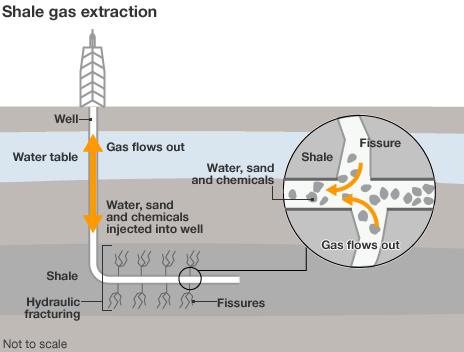

Sites of Special Scientific Interest, which are designated to protect wildlife or geology, are not mentioned.
MPs opposed the passing of the draft regulation when it was read out in the Commons on Tuesday evening. Because this happened after the conclusion of the day's main business, parliamentary rules required the vote to be deferred - until Wednesday.
Under this process of so-called deferred divisions, MP voted on the proposal by filling in ballot papers with the result announced later by Deputy Speaker Natascha Engel.

Shadow energy secretary Lisa Nandy accused ministers of using a "parliamentary backdoor" to try to approve the "weak regulations" without debate.
She said: "Fracking should not go ahead in Britain until stronger safeguards are in place to protect drinking water sources and sensitive parts of our countryside like national parks."

The political battle over fracking
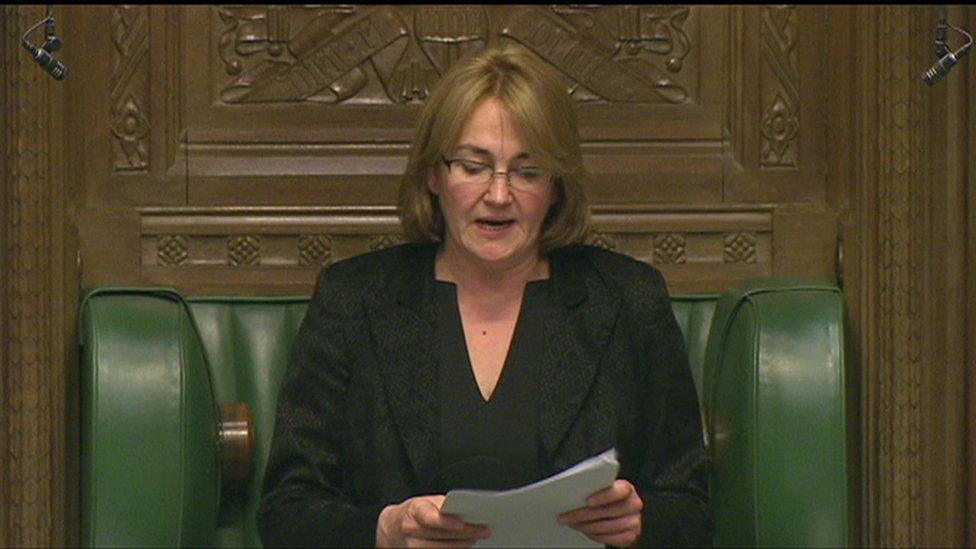
Deputy Speaker Natascha Engel read out the result of the ballot
The vote to allow fracking under national parks is the latest stage of the political battle over drilling for shale gas, writes BBC political reporter Tom Moseley.
MPs voted in January to continue with fracking, and David Cameron declared last year the UK was going "all out" for shale gas - but it remains a controversial issue in the Commons.
This is particularly true for MPs - including many Conservatives - facing fracking, and vocal anti-fracking campaigns, in their constituencies.
In January the government said there would be an outright ban on fracking in protected areas. But that was under the Tory/Lib Dem coalition, and in July the new Conservative administration unveiled new guidelines allowing drilling at least 1,200m under ground.
These were the regulations approved in today's deferred division - sparking accusations of a U-turn from Labour, which wants a moratorium on fracking until "we can be sure it is safe".
Four Tories voted against the government including London mayoral candidate and environmental campaigner Zac Goldsmith and Sarah Wollaston, whose Totnes seat includes Dartmoor national park.

Liberal Democrat leader Tim Farron said the government had shown a "complete lack of regard for protecting some of the most beautiful scenery in the UK and its wildlife", while Greenpeace criticised the use of what it called an "arcane parliamentary process".
Rose Dickinson, of Friends of the Earth, said the new rules would put drinking water and national parks "at risk of fracking" and represented "a complete U-turn on earlier promises".
No fracking is currently taking place in the UK, but details of sites where drilling is likely to take place are expected on Wednesday.
More than 100 sites, of 10km across, are expected to be granted licences, with most in Northern England.
Ms Leadsom said it was "rubbish" to say the government had tried to "sneak in" the new regulations.
Responding to criticism from environmental campaigners, she said moving from coal to gas was a "huge decarbonisation win", adding that shale gas could improve energy security, as well as creating "thousands of jobs" and "billions to the exchequer".
A Department of Energy and Climate Change spokesman added: "The UK has one of the best track records in the world for protecting our environment while developing our industries - these regulations will get this vital industry moving while protecting our environment and people."
- Published15 December 2015
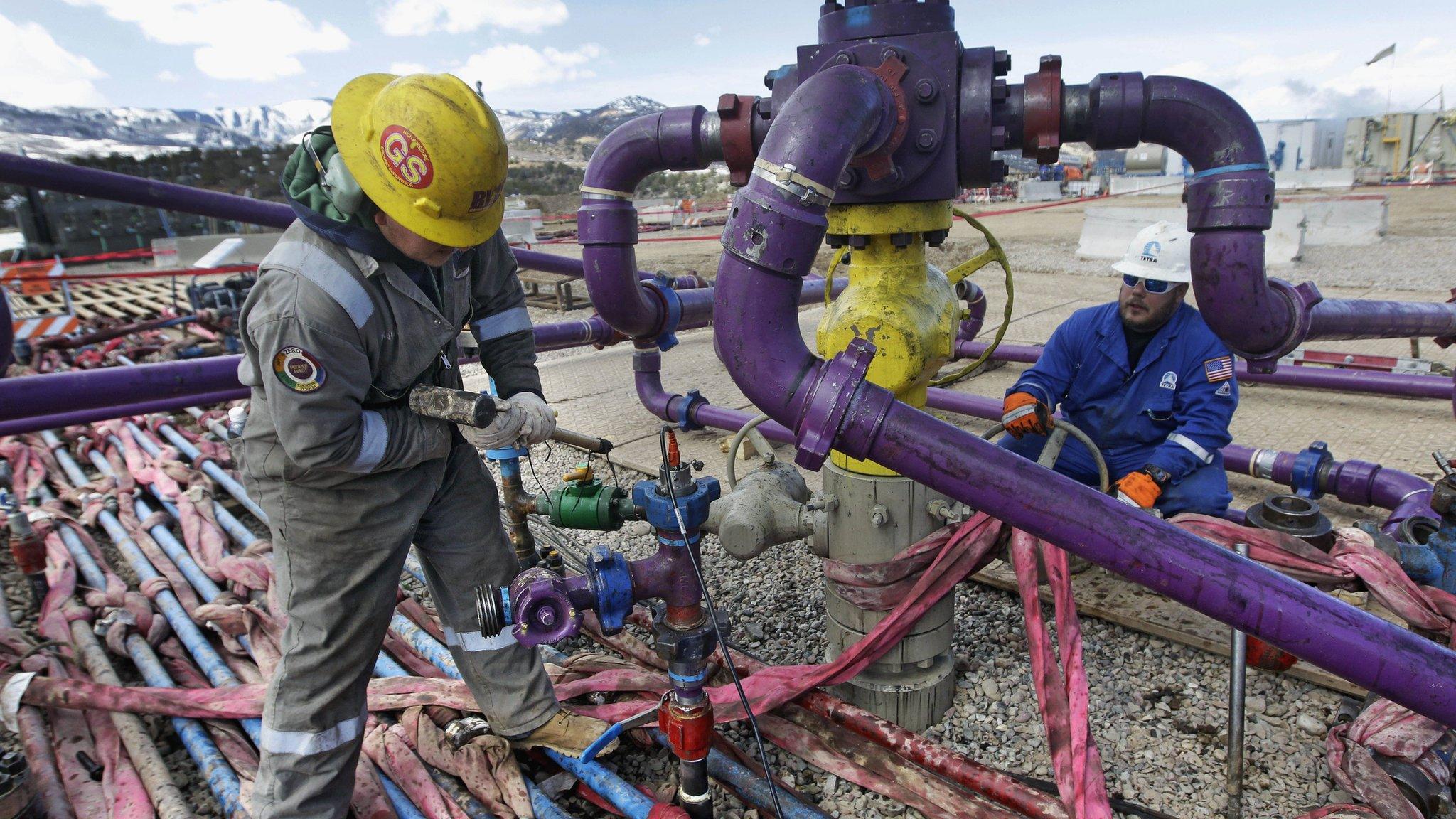
- Published26 January 2015
